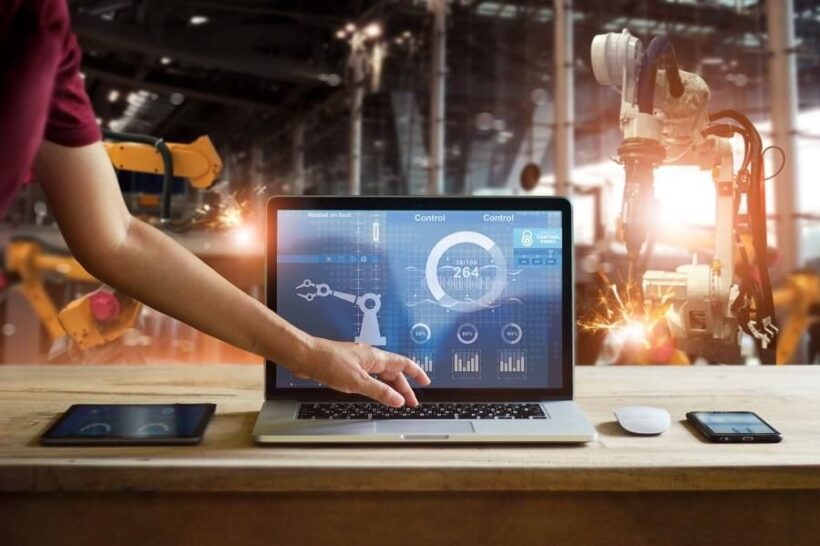From the Internet of Things (IoT) to artificial intelligence (AI) and big data, let’s take a look at the tech trends and innovations that are driving the automotive industry forward.
Innovation has always been the running engine of the automotive industry, prompting its rapid evolution and increasing complexity over the years. The development of the sector fueled by constant research and tech advances is best reflected in the striking differences between the cars that people drove a couple of decades ago and the vehicles that are cruising the roads nowadays. Modern car makes and models are far superior in terms of design, performance and efficiency. They are much faster, safer, more durable, cost-effective and easier to handle than their forerunners.
Behind the scenes, carmakers are constantly looking to implement advanced solutions that can help them streamline the production process and build vehicles that meet consumers’ demands. At the other end, mechanics employ high-end tools and devices like OBD testing equipment to provide accurate diagnoses and faster repairs, and thus improve customer satisfaction.
With technology moving faster than ever before, accelerating changes in all fields, the automotive industry is bound to experience further transformations, impacting all stakeholders, from vehicle manufacturers and dealers to component suppliers, mechanics and consumers. But what are the technologies and innovations that are going to shape the automotive field in the years to come? That’s exactly what we’re going to explore in this article, so let’s dive in.
Electrification
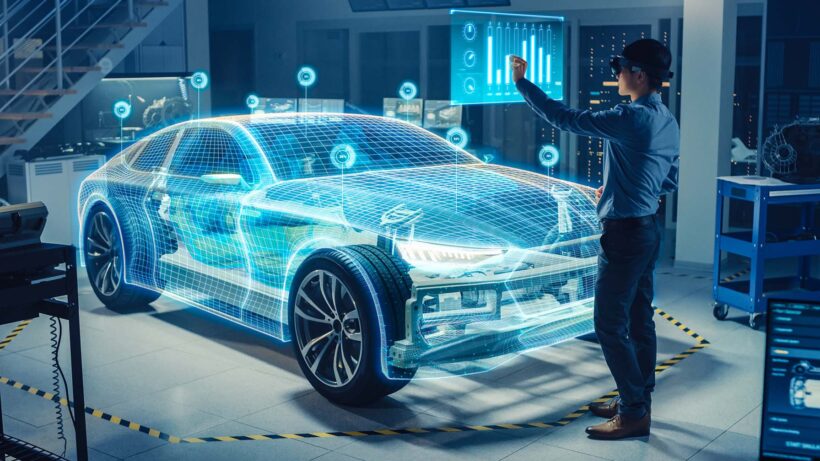
Let’s start with a tech trend that everyone is probably already familiar with, namely electrification. The remarkable increase in electric vehicle sales globally, which more than doubled from 2020 to 2021, combined with the depletion of fossil fuel resources and the negative impact that their intensive use has on the environment, has prompted many to declare that the future of the automotive industry is electric.
Indeed, the mass adoption of electric vehicles seems to be well underway, providing a solution to the growing environmental concerns that the world is facing today. EVs can help reduce greenhouse gas emissions considerably and, at the same time, lower fuel costs.
However, making the switch to EVs also comes with a series of challenges. The biggest issues in this respect relate to their high upfront costs, availability, reduced driving range, limitations of lithium-ion batteries and lack of charging infrastructure. In order to overcome these challenges, researchers and automakers are focusing their efforts on using renewable energy to power EVs and advancing battery technologies to improve EV capabilities.
Internet of Things
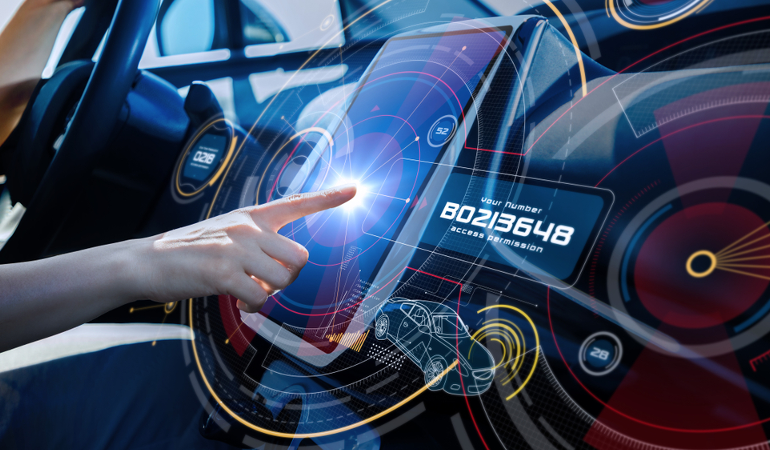
Just like the name implies, the Internet of Things or IoT refers to a network of physical interconnected devices that can communicate with each other and the cloud over the Internet. In the automotive sector, this translates into the integration of sensors, gadgets and applications into vehicles that can collect and exchange data with other vehicles and platforms for different purposes such as remote vehicle monitoring, identifying driving patterns, predictive maintenance, or traffic updates.
A lot of cars these days are equipped with all sorts of IoT sensors and equipment, including GPS and OBD. These can be extremely helpful for both manufacturers and consumers. Car makers can use the data collected via IoT technology to improve the safety and performance of the products they launch on the market, while users can benefit from an enhanced driving experience.
Artificial intelligence
Artificial intelligence (AI) might sound like something straight out of Sci-Fi movies, but is in fact more prevalent than people think, permeating numerous aspects of our daily lives. So, it should come as no surprise that AI is also driving major changes in the automotive sector.
AI applications in the industry range from employing industrial robots that can assist manufacturers in constructing vehicles and using machine learning to develop self-driving technologies to equipping cars with smart virtual assistants that can understand and respond to voice commands from the driver. So, the age of self-driving cars has finally arrived, powered by AI, although there’s still a long way to go until autonomous vehicles can become a mainstream mobility solution.
Human-machine interfaces
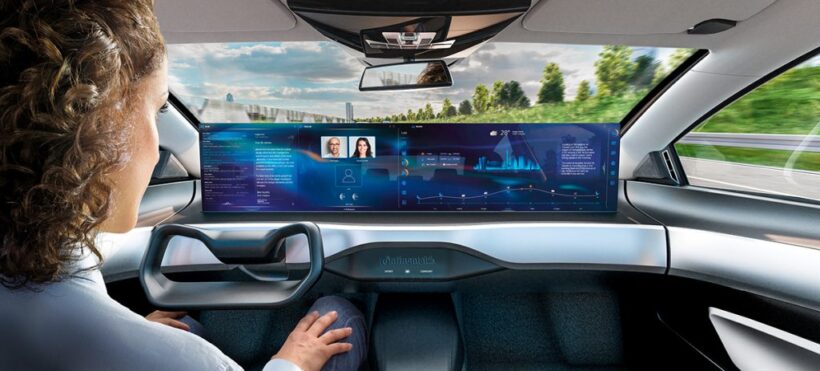
Human-machine interfaces (HMI) are components or features that allow people to communicate with the devices or machines they are using in a much more natural manner. Although HMIs are not a new concept and have been an integral part of modern vehicles for quite some time, newer versions of this technology which usually include features like touchscreens, controls, swipe gestures and voice recognition systems provide enhanced functionality and convenience, making the driving experience far more enjoyable.
Nevertheless, with all the information they display and the features they offer, HMIs can also become a source of driving distraction, so manufacturers need to find a balance between providing users with useful data and keeping distractions to a minimum.
Big data
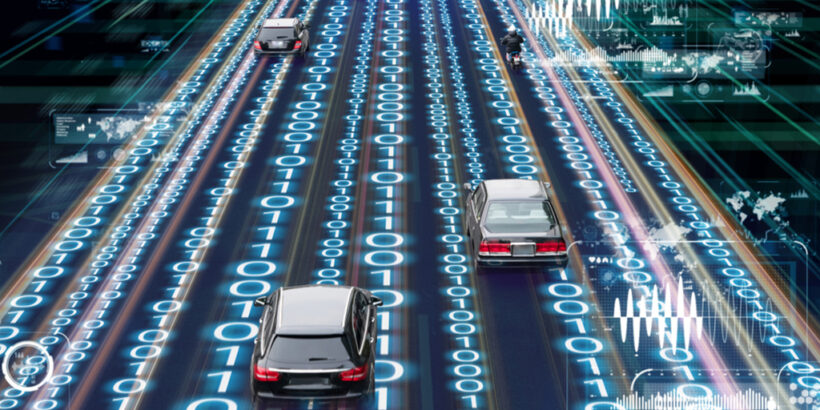
Big Data is another major disruptor in the automotive industry. By collecting and analyzing large amounts of data from various sources such as in-car sensors, IoT devices, social media and so on, automobile manufacturers can improve the products they develop. They can also streamline their supply chain operations, leading to faster delivery times and enhanced customer satisfaction.
In fleet management, Big Data can help monitor vehicle health, identify risks and stay on top of preventive maintenance, increasing safety and fleet performance. Self-driving cars also rely on Big Data analytics to navigate and avoid road collisions, so there are numerous ways in which stakeholders in the automotive industry can leverage this technology.
Final thoughts
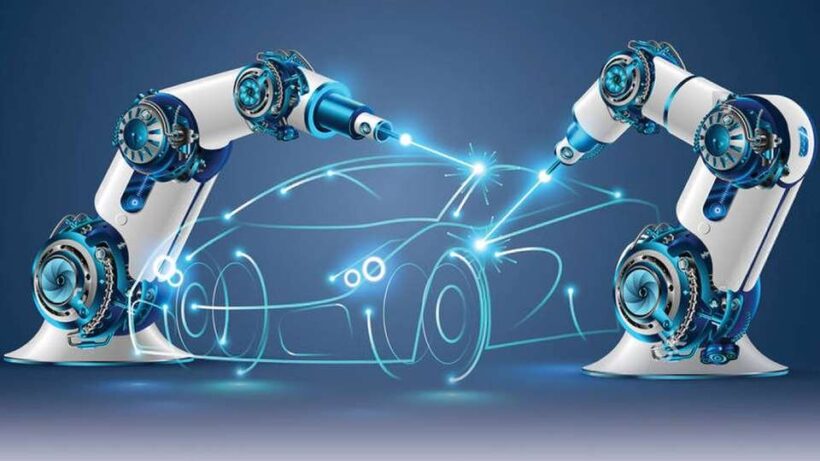
As always, there are plenty of interesting developments taking place in the automotive sector, with cutting-edge technologies and innovations bringing about major transformations in every area and at every level of the ecosystem. From AI-enabled systems to electrification, the industry is advancing by leaps and bounds and undergoing disruptive change, so we’re sure to witness many exciting developments in the years to come.

